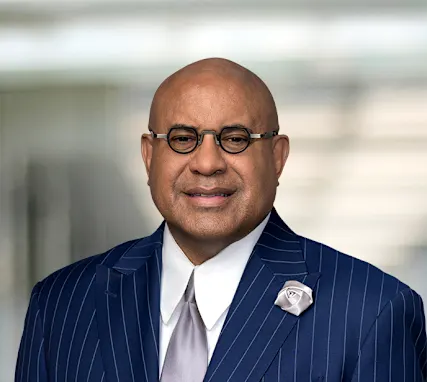Authors
Authors
Key takeaways
- The Trump administration has temporarily paused FCPA enforcement, but risks remain and may be exacerbated by media reporting on this issue. Action may be necessary to ensure continued compliance.
- Given the statute of limitations for FCPA violations, there remains a risk of delayed prosecutions after the temporary pause or under the next administration if enforcement policies shift.
- U.S. companies remain subject to foreign and state anti-corruption laws. FEPA, an alternative weapon in DOJ’s arsenal to combat foreign corruption, remains in place.
- In light of the widespread reporting on this issue, you should:
- Communicate in writing to all employees, independent contractors, and third-party agents that your anti-bribery compliance program remains in full force and effect.
- Brief your executive and compliance teams and Board on these new developments.
- If you have an FCPA case or investigation pending with DOJ, consider directing your counsel to explore and advocate why your case should not be pursued.
On February 10, 2025, President Trump issued an executive order pausing enforcement of the Foreign Corrupt Practices Act (FCPA) for 180 days, citing the need to realign U.S. anti-corruption enforcement with broader American economic and national security interests. The executive order directs the attorney general to issue revised, reasonable FCPA enforcement guidance that promotes American competitiveness and efficient use of federal law enforcement resources.
The FCPA has been a primary tool of federal law enforcement to combat bribery and corruption and enhance transparency in international business operations. In 2024, the Department of Justice (DOJ) and Securities and Exchange Commission (SEC) filed 26 FCPA-related enforcement actions, and at least 31 companies were under investigation by year-end. By temporarily suspending FCPA enforcement, the Trump administration aims to craft a more balanced approach that prioritizes American businesses and allows the United States to compete with other nations on a level playing field.
Next steps: Implementation and review period
The executive order instructs the attorney general to conduct a thorough review of all FCPA-related investigations and enforcement actions over the next 180 days. During this period:
- New investigations to be halted: The DOJ will not initiate any new FCPA investigations or enforcement actions unless explicitly authorized by the attorney general.
- Review of existing cases: The DOJ will reassess ongoing FCPA cases to ensure they restore proper bounds on FCPA enforcement and preserve presidential foreign policy prerogatives.
- Updated guidelines: The attorney general will issue revised guidance that reflects the Trump administration’s “America First” policy objectives. Future FCPA enforcement actions will be governed by these new standards and will require express authorization from the attorney general.
- Potential extensions and further actions: The attorney general may extend the review period for an additional 180 days if deemed necessary. Moreover, remedial measures for past enforcement actions that are deemed inconsistent with the administration’s policies may be considered.
Corporate implications and recommended actions
Clients should not interpret this temporary “pause” on FCPA enforcement as an invitation to disband their compliance programs or to engage in open corruption.
- Enforcement by other jurisdictions remains a concern: U.S. companies remain subject to anti-corruption laws in key markets, including Latin America, Europe, and Asia. Many jurisdictions have robust anti-corruption enforcement agencies that continue to actively prosecute bribery and other illicit activities.
- Legal contingencies and future enforcement risks: Companies must recognize that this or a future administration may resume aggressive FCPA enforcement. Given that the statute of limitations for FCPA violations varies depending on the circumstances, there remains a risk of delayed prosecutions once enforcement priorities shift again. As such, anti-bribery compliance efforts should remain a high priority.
- Potential shift in enforcement focus: Based on the executive order’s language and broader administration policies, there is a strong likelihood that future FCPA enforcement will increasingly target foreign companies subject to the statute’s long-arm jurisdiction. This could signal a shift toward leveraging FCPA enforcement as a tool to counteract foreign competition, aligning with the broader objectives of the Trump administration’s economic agenda.
- Uncertainty surrounding FEPA enforcement: It remains unclear how the executive order will impact the Foreign Extortion Prevention Act (FEPA), which targets foreign officials who “corruptly demand, seek, receive, accept, or agree to receive or accept” a bribe. While the DOJ has yet to bring a FEPA case, it gives U.S. prosecutors a significant alternative weapon in the battle against foreign corruption. Since FEPA primarily targets non-U.S. actors, the Trump administration may view this statute as a more strategic tool for advancing U.S. interests while alleviating compliance burdens on American businesses.
Conclusion
This shift in FCPA enforcement introduces both opportunities and risks for companies engaged in international business. Despite the U.S. pause, companies must remain vigilant about anti-corruption laws in other jurisdictions, forthcoming guidance on U.S. enforcement priorities in this area, and potential future shifts in that guidance.
Our team is closely monitoring developments and stands ready to assist clients in navigating the evolving regulatory environment under the new administration.
Client Alert 25-044
Authors














